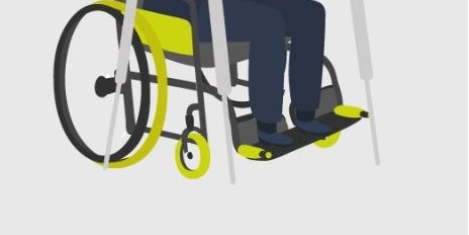To provide the best experiences, we use technologies like cookies to store and/or access device information. Consenting to these technologies will allow us to process data such as browsing behaviour or unique IDs on this site. Not consenting or withdrawing consent, may adversely affect certain features and functions.
The technical storage or access is strictly necessary for the legitimate purpose of enabling the use of a specific service explicitly requested by the subscriber or user, or for the sole purpose of carrying out the transmission of a communication over an electronic communications network.
The technical storage or access is necessary for the legitimate purpose of storing preferences that are not requested by the subscriber or user.
The technical storage or access that is used exclusively for statistical purposes.
The technical storage or access that is used exclusively for anonymous statistical purposes. Without a subpoena, voluntary compliance on the part of your Internet Service Provider, or additional records from a third party, information stored or retrieved for this purpose alone cannot usually be used to identify you.
The technical storage or access is required to create user profiles to send advertising, or to track the user on a website or across several websites for similar marketing purposes.
 The EU continues its snail’s pace when it comes to gender equality progress, according to the latest Gender Equality Index from the European Institute for Gender Equality (EIGE) shows that the EU’s score for gender equality is up just one point to 67.4, since the 2017 edition. Sweden continues to top the EU scoreboard, with 83.6 points, followed by Denmark with 77.5. Greece and Hungary have the most ground to make up, with both scoring less than 52. The biggest improver is Portugal, with an increase of 3.9 points, followed closely by Estonia with 3.1 points. (more…)
The EU continues its snail’s pace when it comes to gender equality progress, according to the latest Gender Equality Index from the European Institute for Gender Equality (EIGE) shows that the EU’s score for gender equality is up just one point to 67.4, since the 2017 edition. Sweden continues to top the EU scoreboard, with 83.6 points, followed by Denmark with 77.5. Greece and Hungary have the most ground to make up, with both scoring less than 52. The biggest improver is Portugal, with an increase of 3.9 points, followed closely by Estonia with 3.1 points. (more…)
















 To mark the launch of its new guide, Meetings Matter,
To mark the launch of its new guide, Meetings Matter, 
 Some people with mental health conditions could be waiting for over a year for employers to put in place much needed workplace adjustments, new findings published today suggest. The findings come from The Great Big Workplace Adjustments Survey 2019, a comprehensive study of disability and long-term conditions conducted by
Some people with mental health conditions could be waiting for over a year for employers to put in place much needed workplace adjustments, new findings published today suggest. The findings come from The Great Big Workplace Adjustments Survey 2019, a comprehensive study of disability and long-term conditions conducted by 












